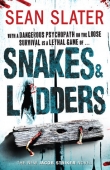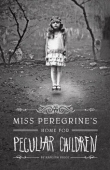
Текст книги "Defending Jacob"
Автор книги: William Landay
Соавторы: William Landay
Жанр:
Криминальные детективы
сообщить о нарушении
Текущая страница: 16 (всего у книги 25 страниц)
Jonathan went to the clerk and handed her the motion, a single sheet announcing that I would be part of the defense team. The clerk handed the sheet to the judge, who frowned at it.
“It’s not really my decision, Mr. Klein, but I’m not sure it’s wise either.”
“It’s the family’s wish,” Jonathan said, distancing himself from the decision.
The judge scribbled his name on the sheet, allowing the motion. “Mr. Barber, you can come forward.”
I came around the bar and sat down at the defense table beside Jacob.
“Anything else?”
“Your Honor, I have filed a motion in limine to exclude scientific evidence based on an alleged genetic predisposition to violence.”
“Yes. I have read your motion and I am inclined to allow it. Do you wish to be heard further before I rule? As I understand it, your position is that the science has not been established and, even if it was, there is no specific evidence of a violent propensity, genetic or otherwise, in this case. Is that the gist of it?”
“Yes, Your Honor, that’s the gist.”
“Mr. Logiudice? Do you want to be heard or will you rest on your brief? It seems to me the defense is entitled to a hearing on that sort of evidence before it comes in. Mind you, I am not excluding such evidence definitively. I am merely ruling that, if you choose to offer evidence of a genetic tendency to violence, we will hold a hearing at that time, outside the jury’s presence, to decide whether it will be admitted or not.”
“Yes, Your Honor, I would like to be heard on that.”
The judge blinked at him. His face read plain as day, Sit down and shut up.
Logiudice stood and buttoned his suit coat, a slim three-button number that, when buttoned up this way, did not fit him properly. Logiudice’s neck craned forward slightly while the jacket stayed erect, which caused the coat collar to float an inch or two away from his neck like a monk’s cowl.
“Your Honor, the Commonwealth’s position-and we are prepared to offer expert evidence on this point-is that the science of behavioral genetics has made great strides and continues to advance every day, and it is already mature enough by far and away to be admitted here. We would submit that this is even the extreme case where to exclude such evidence would be improper-”
“The motion is allowed.”
Logiudice stood there a moment, unsure if his pocket had just been picked.
“Mr. Logiudice,” the judge explained as he signed the motion, Allowed. French, J., “I have not excluded the evidence. My ruling is simply that, if you want to offer it, you will have to provide notice to the defense and we will have a hearing on its admissibility before you offer it to the jury. Understood?”
“Understood, Your Honor.”
“Let me be crystal clear: not a word of it until I rule it’s coming in.”
“Understood, Your Honor.”
“We’re not going to turn this into a circus.” The judge sighed. “All right, anything else before I bring in the jury venire?”
The lawyers shook their heads.
With a series of nods-the judge to the clerk, the clerk to the court officer-the potential jurors were fetched from one of the lower floors. They shuffled in, rubbernecking the courtroom like tourists wandering through Versailles. The chamber must have disappointed them. It was a grungy courtroom in the modern style: high boxy ceilings, minimalist furnishings of maple wood and black laminate, muted indirect lighting. Two flags drooped from listing flagpoles, an American flag to the judge’s right and the flag of Massachusetts to his left. The American flag at least had its original vivid colors; the state flag, once pure white, had faded to a dingy ivory. Otherwise there was nothing, no statue, no chiseled Latin inscription, no portrait of a forgotten judge, nothing to relieve the Scandinavian austerity of the design. I had been in this courtroom a thousand times, but the jurors’ disappointment made me look at it, finally, and realize how exhausted it all appeared.
The jury pool filled the entire gallery at the back of the courtroom, leaving only the two benches that had been reserved for the defendant’s family, reporters, and a few others whose courthouse connections entitled them to remain. The potential jurors were a mix of working people and housewives, kids and retirees. Jury pools usually skewed slightly blue-collar and underemployed, since these were the people more likely to respond to a summons. But this jury pool had a vaguely professional look to it, I thought. Lots of good haircuts, new shoes, BlackBerry holsters, pens sticking out of pockets. This too was good for us, I decided. We wanted smart, coolheaded jurors, people with the brains to understand a technical defense or the limitations of scientific evidence, and the balls to say Not guilty.
We began the process of voir dire, the question-and-answer process by which juries are chosen. Jonathan and I each had our jury seating charts, a table of two rows, six columns-twelve places in all, plus two extra boxes on the right side of the sheet-matching the chairs in the jury box. Twelve jurors, plus two alternates who would hear all the evidence but would not take part in the deliberations unless one of the jurors dropped out. Fourteen candidates were called forward, fourteen chairs were filled, we scribbled the names plus a few notes in the boxes on our scorecards, and the process began.
Jonathan and I conferred on each potential juror. We had six peremptory challenges, which we could use to eliminate a juror without stating a reason, and an unlimited number of challenges “for cause,” meaning challenges based on some explicit reason to think the juror would be biased. For all the strategizing, jury selection has always been something of a shot in the dark. There are pricey experts who claim to remove some of the guesswork using focus groups, psychological profiling, statistics, and so on-the scientific method-but predicting how a stranger will judge your case, especially based on the very limited information in a jury questionnaire, is frankly more art than science, the more so in Massachusetts where the rules severely limit how extensively jurors may be questioned. And yet, we tried to sort them. We looked for education; for suburbanites who might sympathize with Jacob and not hold his comfortable background against him; for dispassionate professions like accountant, engineer, programmer. Logiudice tried to load up on working folks, parents, anyone who might be outraged at the crime and who would have little problem believing a boy could kill even on scant provocation.
Jurors came forward, sat, were dismissed, and new candidates came forward and sat, and we scribbled details about them in our seating charts-
And two hours later we had our jury.
We gave each juror a nickname so we could remember them. They were: the Schoolteacher (forewoman), Glasses Girl, Grandpa, Fat Somerville Guy, Recording Studio Guy, Urkel, the Canal (a woman born in Panama), Waltham Mom, the Waitress, Construction Guy (properly a wood-floor installer, a surly squinty-eyed piece of work whom we worried about from the start), Concord Housewife, Truck Driver (actually a delivery guy for a commercial food-supply company), Braces Woman (alternate), and the Bartender (alternate). They had nothing in common except their glaring lack of qualifications for the job. It was almost comical how ignorant they were of the law, of how trials worked, even of this case, which had been splashed all over the newspapers and evening news. They were chosen for their perfect ignorance of these things. That is how the system works. In the end, the lawyers and judges happily step aside and hand the entire process over to a dozen complete amateurs. It would be funny if it were not so perverse. How futile the whole project is. Surely Jacob must have realized it as he looked at those fourteen blank faces. The towering lie of the criminal justice system-that we can reliably determine the truth, that we can know “beyond a reasonable doubt” who is guilty and who is not-is built on this whopper of an admission: after a thousand years or so of refining the process, judges and lawyers are no more able to say what is true than a dozen knuckleheads selected at random off the street. Jacob must have shivered at the thought.
26
Someone Is Watching
T hat night, over dinner, in the safety of our kitchen, we chattered excitedly. Words came tumbling, grumbles, boasts, fears. We were working off nervous energy more than anything else.
Laurie did her best to keep all the talk going. She was evidently exhausted from a sleepless night and a long day, but she always believed that the more we talked, the better off we would all be. So she posed questions and confessed her own fears and kept passing dishes of food, inviting us to talk and talk. In these light moments, I glimpsed the old effervescent Laurie-or rather, I heard her, for her voice never aged. In every other way Laurie withered during Jacob’s crisis: her eyes looked sunken and haunted, her peaches-and-cream complexion became sallow and cracked. But her voice was gloriously untouched. When she opened her mouth, out came the same teenage girl’s voice I had first heard nearly thirty-five years before. It was like a phone call from 1974.
At one point Jacob said of the jury, “I don’t think they liked me, just the way they were looking at me.”
“Jacob, they’ve only been in the box one day. Give them a chance. Besides, so far all they know about you is that you’ve been accused of murder. What do you expect them to think?”
“They’re not supposed to think anything yet.”
“They’re human, Jake. Just don’t give them any reason to dislike you, that’s all you can do. Stay cool. No reactions. None of your faces.”
“What faces?”
“You have a face you make when you’re not paying attention. You scowl.”
“I don’t scowl!”
“You do.”
“Mom, do I scowl?”
“I haven’t noticed it. Sometimes your father gets carried away with the strategy.”
“You do, Jake. It’s like-” I made the scowling face.
“Dad, that’s not a scowl. You just look constipated.”
“Hey, I’m serious. That’s what you look like when you’re not paying attention. It makes you look angry. Don’t let the jury see that face.”
“That’s my face! What can I do?”
“Just be your handsome self, Jacob,” Laurie said sweetly. She gave him a broken little smile. Her sweatshirt was on backward. She seemed unaware of it, though the tag rubbed against her throat.
“Hey, speaking of my handsome self, did you guys know there’s a Twitter hashtag about me?”
Laurie: “What does that mean?”
“It’s a way for people to talk about me on Twitter. And what they’re saying? It’s all like: Jacob Barber is gorgeous. I want to have his baby. Jacob Barber is innocent.”
Me: “Yeah, what else are they saying?”
“All right, there’s some bad things, but mostly it’s positive. Like seventy percent.”
“Seventy percent positive?”
“About.”
“You’ve been following it that closely?”
“It only happened today. But yeah, of course I read it. You’ve got to check it out, Dad. Just go to Twitter and search for ‘pound sign Jacob Barber,’ no spaces.” He wrote it on his paper napkin: #jacobbarber. “I was a trending topic! Do you know what that means? Usually that’s like Kobe Bryant or Justin Timberlake or people like that.”
“That’s, um, great, Jacob.” I gave a skeptical look to the boy’s mother.
This was not the first time our son’s Internet celebrity had come up. Someone-probably a school friend-had put together a website, JacobBarber. com, to support him. The site featured a message board where people could declare Jacob’s innocence or wish him well or expound on his saintly character. Negative messages were filtered out. There was a Facebook group supporting him too. The consensus online was that Jacob was a little odd, possibly homicidal, definitely attractive, conclusions that were not unrelated. He also got occasional text messages on his cell phone from strangers. Most were vicious, but not all. Some were from girls who told him he was cute or made sexual propositions. He claimed these messages ran about two to one negative versus positive, and this seemed to be enough for him. He knew he was innocent, after all. Anyway, he did not want to change his cell phone number.
Laurie: “Maybe you should stay off Facebook and all that, Jacob. At least until this is over.”
“I just read, Mom. I never write anything. I’m a lurker.”
“A lurker? Don’t use that word. Do me a favor, just stay away from the Internet for a while, will you? You could get hurt.”
“Jacob, I think what your mother is saying is that the next couple of weeks may go easier if we just try to stay on an even keel. So maybe we should all just close our ears a little bit.”
“I’ll miss my fifteen minutes of fame,” he said. He grinned, oblivious and blithely brave, as only a kid can be.
Laurie looked horrified.
“That’d be a real shame,” I grumbled.
“Jacob, let’s hope you have your fifteen minutes of fame for something else.”
We all went quiet. Silverware clinked on plates.
Laurie said, “I wish that guy would turn off his engine.”
“What guy?”
“That guy.” She gestured with her knife toward the window. “Don’t you hear him? There’s a guy sitting in his car out there with the engine running. It’s giving me a headache. It’s like this buzz in my ear that won’t go away. What’s the word for that, when you get a buzz in your ear?”
“Tinnitus,” I said.
She made a face.
“Crossword puzzles,” I explained.
I got up to look out the window, more curious than concerned. It was a big sedan. I couldn’t make out precisely what model. Some oversized end-of-the-American-auto-industry crap four-door, maybe a Lincoln. It was parked across the street, two houses down, in a dark area between streetlights where I could not see the driver at all, even in silhouette. Inside there was a dot of amber light like a star as the driver took a drag from a cigarette, then the little star winked out.
“Probably just waiting for someone.”
“So let him wait with the engine off. Hasn’t this guy heard of global warming?”
“Probably an older guy.” I was inferring from the cigarette, the idling engine, the aircraft-carrier-sized car-all habits that belonged to an older generation, I thought.
“Asshole’s probably a reporter,” Jacob said.
“Jake!”
“Sorry, Mom.”
“Laurie, why don’t I go talk to him? I’ll tell him to turn it off.”
“No. Who knows what he wants? Whatever he’s up to, it can’t be good. Just stay put.”
“Honey, you’re being paranoid.” I never used words like honey or sweetie or dear, but the gentle tone seemed necessary. “It’s probably just some old geezer smoking a butt, listening to the radio. He probably doesn’t realize he’s bothering anyone leaving the engine running.”
She frowned skeptically. “You’re the one who keeps saying we have to keep our heads down, stay out of trouble. Maybe he wants you to come out there and try something. Maybe he’s trying to bait you into it.”
“Laurie, come on. It’s just a car.”
“Just a car, huh?”
“Just a car.”
But it was not just a car.
Around nine I took out the garbage: one plastic barrel of trash, one awkward rectangular green bucket of recycling. The recycling bucket was sized in such a way that it could not quite be carried in one hand comfortably. Your fingers always began to cramp halfway up the driveway, so that carrying both items to the sidewalk in one trip involved a fast-waddling race-walk out to the street before the recycling spilled all over. It was not until I had put the barrel and the recycling bucket down and arranged them neatly side by side that I noticed the same car again. It had moved. This time it was parked a few houses away from ours in the other direction, again across the street. The engine was off. No firefly of a burning cigarette inside. The car might even have been empty. It was impossible to tell in the dark.
I peered into the dark to make out some details about the car.
The engine came on, then the headlights. The car had no front license plate.
I began to pace toward it, curious.
The car backed away from me slowly, like an animal sensing a threat, then it backed away fast. At the first cross street, it did a quick, expert turnaround and drove off. I never got closer than twenty yards. In the dark, I could not make out anything about the car, not even the color or the make. It was reckless driving on such a small street. Reckless and good.
Later still, after Laurie had sensibly gone to sleep, I sat watching Jon Stewart with Jacob in the living room. I had spread myself across the couch with my right foot propped on the cushion and my right arm dangled over the backrest. I felt an itch, a faint sensation of being watched, and I lifted the blind to peek out again.
The car was back.
I went out the back door, through the neighbor’s backyard, and emerged behind the car. It was a Lincoln Town Car, license plate 75K S82. The interior was dark.
I walked up slowly alongside the driver’s door. I felt ready to knock on the glass, to open the door, pull the guy out of the car, to pin him down on the sidewalk and warn him to stay away from us.
But the car was empty. I looked around briefly for the driver, a man with a cigarette. But I was being a fool. Laurie was making me paranoid too. It was just a parked car. Probably the driver was in one of the adjacent houses sound asleep or screwing his wife or watching the tube or doing any of the things normal people do, the things we used to do. What had I really seen, after all?
Still, better safe than sorry. I called Paul Duffy.
“Counselor,” he answered in his old laconic way, as if he was pleased to hear from me, pleased and not surprised, even after months of silence, at eleven-thirty on the eve of opening statements.
“Duff, sorry to bother you.”
“No bother. What’s wrong?”
“It’s probably nothing. I think there might be someone watching us. He’s been parked outside all night.”
“It’s a man?”
“I’m not sure. I didn’t see him. Just the car.”
“You said ‘him.’ ”
“I’m assuming.”
“What was he doing?”
“It was just a car parked out front of the house with his engine running. This was around six, dinnertime. Then I saw him again around nine o’clock. But as soon as I started to walk toward him, he turned around and took off.”
“Has he threatened you in any way?”
“No.”
“Have you ever seen the car before?”
“No. I don’t think so.”
Deep breath into the phone. “Andy, can I give you a piece of advice?”
“I wish somebody would.”
“Go to bed. Tomorrow’s a big day for you. You’re all under a lot of pressure.”
“You think it’s just a parked car.”
“Sounds to me like it’s just a parked car.”
“Would you do me a favor and run the plate? Just to be sure. Laurie’s really stressed. It’d make her feel better.”
“Just between you and me?”
“Of course, Duff.”
“Okay, give it to me.”
“It’s Mass. plate number 75K S82. It’s a Lincoln Town Car.”
“All right, hold on.”
There was a long silence as he called it in. I watched Steven Colbert with the sound muted.
When he came back, he said, “That plate belongs on a Honda Accord.”
“Shit. It’s stolen.”
“No. It hasn’t been reported stolen, at least.”
“So what’s it doing on a Lincoln?”
“Probably just borrowed it, in case somebody noticed him and reported the plate to the cops. All you need is a screwdriver.”
“Shit.”
“Andy, you need to call this in to Newton P. D. It’s still probably nothing, but file a report and at least get it on the record.”
“I don’t want to do that right now. The trial starts tomorrow. If I report it, it’ll find its way into the news. I can’t have that. It’s important we seem normal and stable right now. I want that jury to see a regular family, just like them. Because we are just like them.”
“Andy, if someone’s threatening you…”
“No. No one’s threatened us. No one’s actually done anything. You said yourself, it looks like just a parked car.”
“But you were worried enough that you called me.”
“Doesn’t matter. I’ll deal with it. If the jury hears about it, half of them would think we’re full of shit. They’d think we’re faking it to drum up sympathy, like we’re trying to play the victim in all this. No drama. Anything that makes us look odd, untrustworthy, phony, strange, makes it harder to get them to say not guilty.”
“So what do you want to do?”
“Maybe you could send a cruiser by without filing a report? Just move him along, scare him off. Just so I can tell Laurie she doesn’t have to worry.”
“I better do it myself, otherwise there’ll have to be a report.”
“I appreciate it. There’s no way I can ever pay you back.”
“Just get your kid home safe, Andy.”
“You mean that?”
A pause.
“I don’t know. This whole thing just doesn’t feel right. Maybe it’s just seeing you and Jacob at the defense table. I’ve known that kid since he was born.”
“Paul, he didn’t do it. I guarantee it.”
He grunted, unconvinced. “Andy, who would be watching your house?”
“The victim’s family? Maybe some kid who knew Ben Rifkin? Some nut who read about the case in the paper? Could be anyone. Did you guys ever follow up on Patz?”
“Who knows? Andy, I have no idea what’s going on over there. They’ve got me in a friggin’ public relations unit. Next thing, they’ll have me riding up and down the turnpike giving speeding tickets. They pulled me off the case as soon as Jacob got indicted. I half expected them to investigate me, like I was in some kind of cover-up with you. So I don’t have much information. But there was no reason for them to keep going after Patz once they charged someone else. The case was already solved.”
We both considered that in silence a moment.
“All right,” he said, “I’ll be by. Tell Laurie it’s okay.”
“I already told her it’s okay. She doesn’t believe me.”
“She won’t believe me either. Whatever. You go get some sleep too. You two won’t make it like this. It’s only the first night.”
I thanked him and went upstairs to climb in bed with Laurie.
She lay curled up like a cat, her back to me. “Who was that?” she murmured into her pillow.
“Paul.”
“What’d he say?”
“He said it’s probably just a parked car. Everything’s okay.”
She groaned.
“He said you wouldn’t believe him.”
“He was right.”








